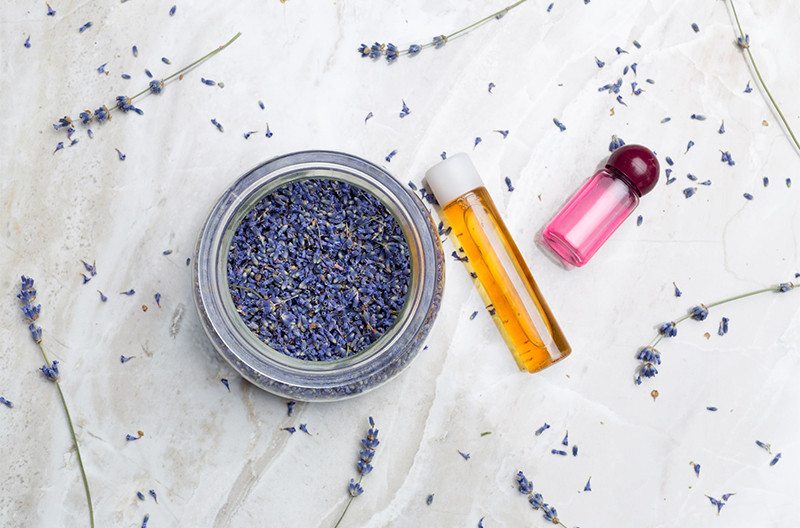Lavender essential oil is a versatile and popular oil that is great for both its aromatic and topical benefits. It’s an anti-anxiety, anti-insomnia, antibacterial and antifungal oil that can be used in your daily life.[1] When used solo, this oil is strongly soothing for the mind and body. In combination, lavender essential oil blends can improve targeted problems you may have, such as migraines, stress, or even muscle pain. Thankfully, lavender essential oil blends well with so many other oils to create tailored combinations for whatever purpose you need.
The main ingredient that makes this oil such a superstar in the essential oil world is linalool. You see, the linalool found in lavender plants is a natural sedative. Plus, the effects of linalool in essential oil can be gained through both aromatherapy and topical application. To get the most out of this amazing oil, get ready to learn more about what lavender essential oil blends well with for all your needs.
Fragrance Profile of Lavender Essential Oil
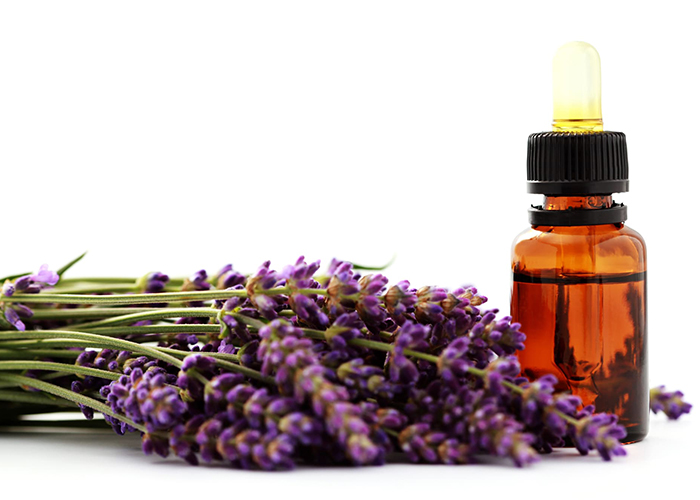
Even if you’ve never taken a deep inhale near the purple, bush-like lavender plant, you’ll quickly get addicted to its essential oil. Lavender essential oil is deeply floral and sweet, but with just enough herb undertone to keep you from feeling overwhelmed by the flowery smell.
Because this essential oil is so common and complementary, lavender essential oil blends well with countless other oils. Try out some of the following essential oil blends for soap or massage oils. We’ve even included a few essential oil diffuser blends for you to try. Because lavender is a relaxing oil, you’re sure to feel great after every use.
What Does Lavender Essential Oil Blend Well With?
Chamomile
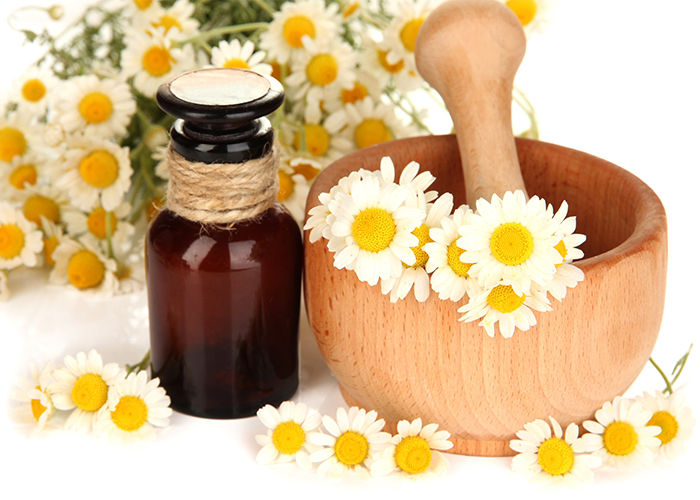
Daily stresses can make it difficult to unwind before bed. Luckily, lavender essential oil blends well with chamomile to promote sleep. Basically, the smells of both these oils trigger receptors in your brain that induce tranquility and calmness.[2]’[3]
The sweet straw-like smell of chamomile and the floral lavender make an especially soothing and nostalgic mix. Additionally, they have sedative properties that fight anxiety and depression. In fact, one study indicated that lavender improves anxiety as well as a clinically-prescribed drug would.[4] Another study showed that lavender and chamomile aromatherapy reduced anxiety levels and improved sleep in the test population.[5]
Chamomile lavender sleepy-time pillow spray
Dilute three drops of chamomile and three drops of lavender oil with 30 ml of water. Spray on your pillow and sheets before climbing into bed.
Peppermint
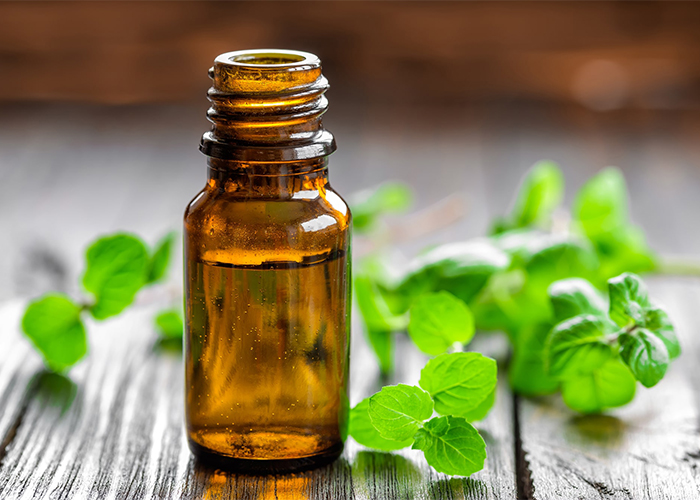
These two smells, while very different, come together to combat head pain. Peppermint’s sharp and fresh scent cut through lavender’s more mild tones, but still work well together. Research shows that peppermint essential oil is as effective in treating tension-headaches as well as a common pain reliever like paracetamol.[6]
Along with that, when lavender essential oil was inhaled for 15 minutes by patients with acute migraines, there was a significant improvement in headache severity.[7] Don’t let yourself suffer through another minute of head throbbing pain when peppermint and lavender oils are at your disposal.
Peppermint lavender temple rub for migraines/headaches
Combine one drop of peppermint oil and two drops of lavender oil with one tablespoon of carrier oil. Use your fingers to gently massage the mixture onto both of your temples or the back of your neck.
Eucalyptus
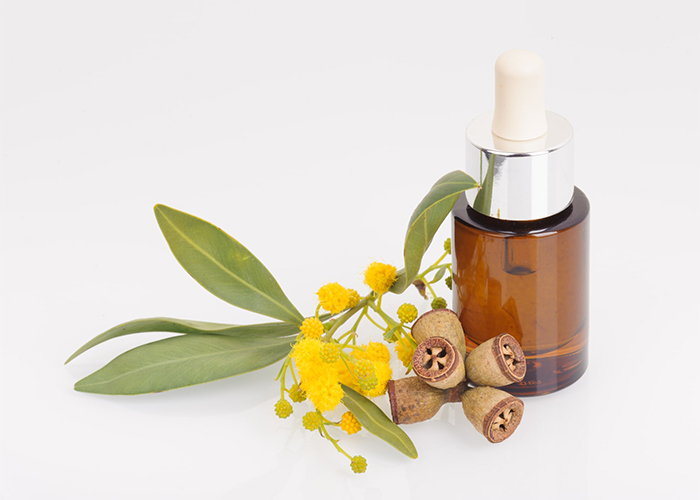
Eucalyptus essential oil is sharp and minty but just subtle enough to allow the lavender’s calming scent to waft through too. The cooling effect of the menthol in eucalyptus soothes muscle pain and soreness. Lavender is also known for helping muscle pain specifically when applied topically.[8]
In combination, lavender and eucalyptus are a dynamic-duo your body will thank you for. In one comparative study, a group of senior adults with chronic pain had a massage once per week. One group had the massage with lavender and eucalyptus essential oils and the other group just had neutral almond oil. The group with the essential oils reported less muscle pain and better sleep in general than the non-essential oil group.[9]
Eucalyptus lavender muscle pain massage oil
Mix together four drops of eucalyptus and four drops of lavender essential oil with 30 ml of almond oil. Apply to your skin and deeply massage the muscle area causing you pain.
Rosemary
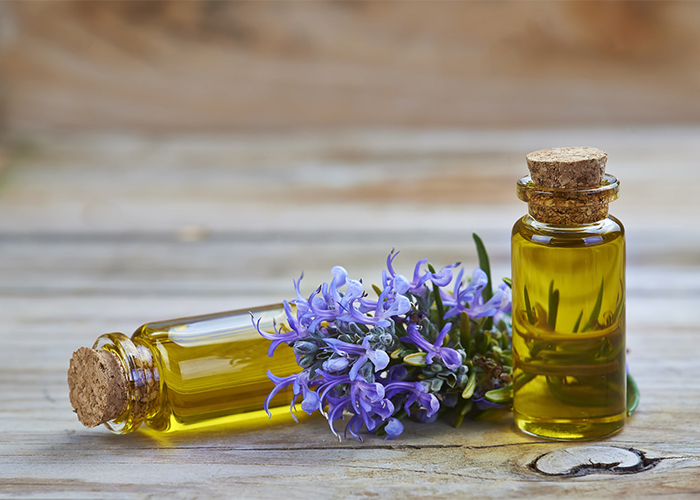
Lavender essential oil blends well with rosemary in both smell and functionality. The earthy rosemary scent compliments the floral lavender to make a winning combination that will keep you coming back for more. Additionally, the two oils can improve your cognitive function when inhaled.[10] According to two studies, rosemary and lavender improved short-term memory over time in both teenagers, and in adults with Alzheimer’s.[11]
Rosemary lavender memory-boosting aromatherapy
Diffuse two parts rosemary and one part lavender essential oils in your room to improve your short term memory. Check your diffuser machine for the specific drop amounts.
Clove
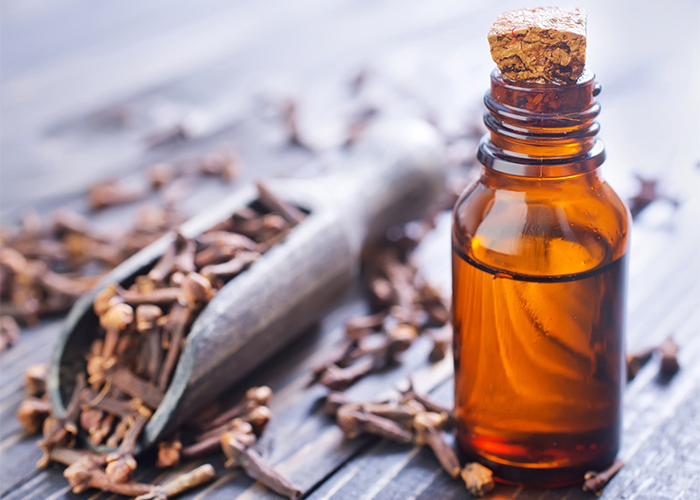
Clove essential oil is a sweet and spicy smelling oil with incredible antifungal benefits. Lavender essential oil blends well with clove aromas as it mellows out the intensity. But furthermore, the two oils can help fight fungus on your body, like candida. Research shows that clove essential oil can halt the growth of fungus, and can reduce certain fungi that are already present.[12] Likewise, lavender can combat common nail and skin fungus infections too, leaving you fully covered no matter where you have an outbreak.[13]
Clove and lavender antifungal lotion
Combine three drops of clove, three drops of lavender oil, and a palm-sized amount of neutral, scent-free lotion (about two tablespoons worth). Rub onto your feet, armpits, or anywhere you suspect of a fungal infection.
Bergamot
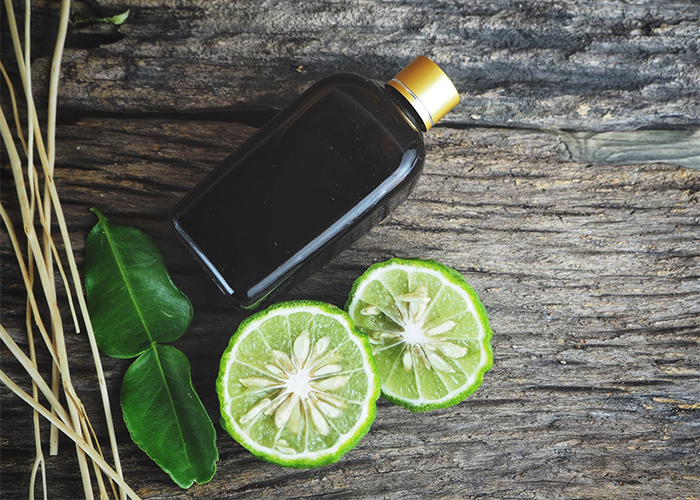
Bergamot is a unique smelling oil with hints of citrus and spice mixed together. Like lavender, bergamot essential oil contains high amounts of linalool. This makes it a calming oil that can ease depression symptoms in the nervous system. The two oils were used in an aromatherapy study tracking the effects of both inhalation and massage. They proved beneficial in reducing the depressive symptoms in a wide variety of participants.[14]
Bergamot and lavender “Relieve Depression” aromatherapy
Diffuse equal parts rosemary and lavender essential oils in your room to improve symptoms of depression. Check your diffuser machine for the specific drop amounts.
Tea Tree
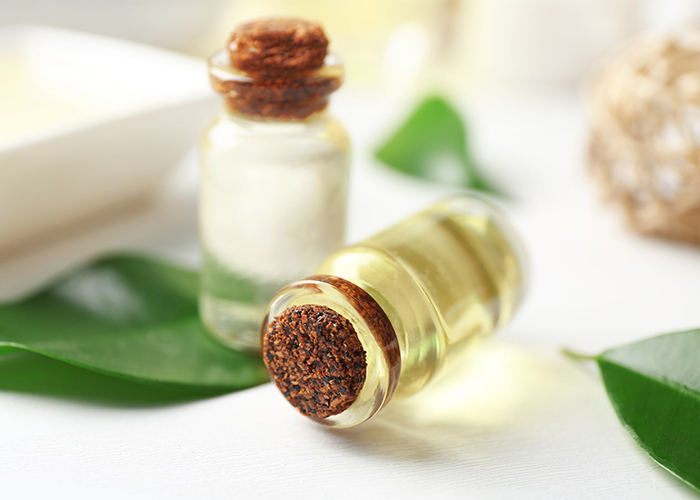
If you have kids, you probably have or will have head lice in your home at some point. Thankfully, tea tree is another oil that lavender essential oil blends well with for its antimicrobial properties that can fight off lice. Tea tree is ideal to mix with lavender’s flowery aroma as it smells similar to eucalyptus with less minty tones. One study showed that a lavender and tea tree combination was effective in killing head lice in just one application.[15] Both oils are safe to use on your hair and can even promote hair growth while they work to kill those buggers.
Tea tree lavender homemade lice treatment
Combine six drops
of lavender with six drops of tea tree oil with 20 ml of water and 10ml of
carrier oil (e.g. coconut oil). Spray or rub on the hair and massage into the
scalp. Let sit for 15 minutes before picking out lice and washing.
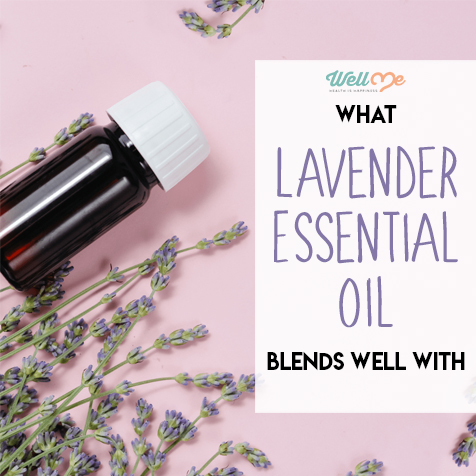
References
- [1] https://www.sciencedirect.com/science/article/pii/S2221169115001033
- [2] https://www.ncbi.nlm.nih.gov/pmc/articles/PMC2995283/
- [3] https://www.ncbi.nlm.nih.gov/pmc/articles/PMC3612440/
- [4] https://www.ncbi.nlm.nih.gov/pmc/articles/PMC3612440/
- [5] https://pdfs.semanticscholar.org/bc48/10cf41772bb9a12ba5af088ac70689995dd1.pdf
- [6] https://www.ncbi.nlm.nih.gov/pubmed/27106030
- [7] https://www.ncbi.nlm.nih.gov/pubmed/22517298
- [8] https://www.sciencedirect.com/science/article/pii/S2221169115001033
- [9] https://pdfs.semanticscholar.org/fde7/01aa9f22a92e80bcf0241dec5f106b76b342.pdf
- [10] https://www.sciencedirect.com/science/article/pii/S2090506816301944
- [11] https://www.sciencedirect.com/science/article/pii/S2090506816301944
- [12] https://www.ncbi.nlm.nih.gov/pmc/articles/PMC3763181/
- [13] https://www.sciencedaily.com/releases/2011/02/110214201842.htm
- [14] https://www.ncbi.nlm.nih.gov/pmc/articles/PMC5241490/
- [15] https://bmcdermatol.biomedcentral.com/articles/10.1186/1471-5945-11-14

